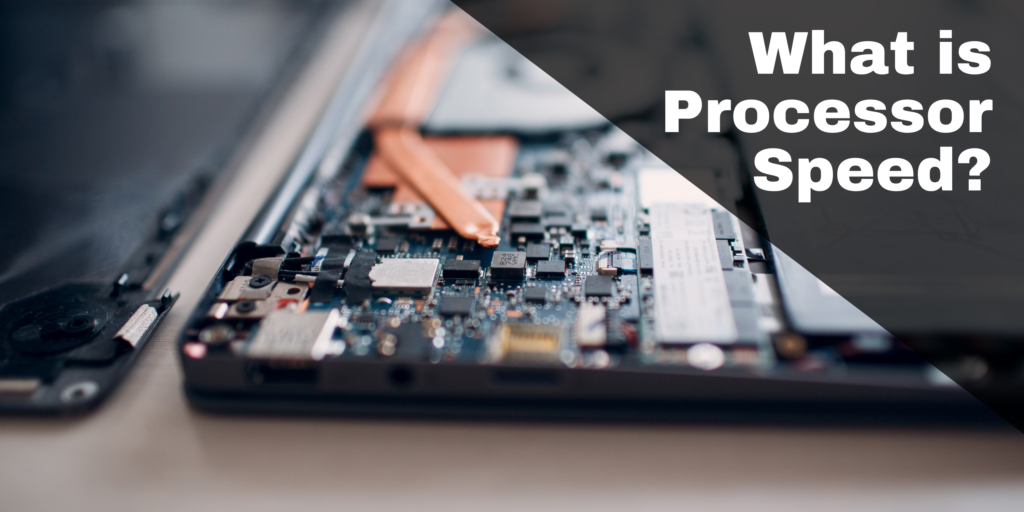With the advancement of technology, greater productivity objectives, quicker internet, and the proliferation of gadgets, we have created a desire for speed wherever we go. We are accustomed to receiving immediate responses and expect our electronics to keep up with our requests as we multi-task our way through life. Computer processors and their clock speeds are two characteristics that are usually associated with high-performance, rapid technology.
The number of cycles per second at which a computer’s central processing unit runs and can process information is referred to as processor speed. Processor speed is measured in megahertz and is required to run programmes. The faster data can be processed, the more cycles a computer’s central processing unit can complete every second. The faster a computer can process data, the faster it can accomplish a task. A computer with a high processor speed can accomplish more tasks in the same amount of time as a computer with a sluggish processor, and it can run more programmes simultaneously. Some apps are processor-intensive, which means they require a significant amount of data to be processed in order to function.
What is clock speed?
In computing, clock speed generally refers to the frequency at which a processor’s clock generator can create pulses required to synchronise the activities of its components, and is used as an indicator of the processor’s speed. It is measured in clock cycles per second or its SI unit hertz (Hz).
What exactly is a PC processor and what does it do?
A processor is an integrated electrical circuit that conducts the computations that allow a computer to function. It is analogous to a computer’s brain. In layman’s words, it understands the user’s instructions and executes the necessary activities. The processor is the primary component that affects how fast your computer will run. A processor executes arithmetic, logic, input/output (I/O), and other fundamental commands sent by an operating system (OS).
What exactly is a CPU core?
A processor core (or simply “core”) is a single processor within a central processing unit (CPU). Many modern computers feature multi-core processors, which means the CPU has more than one core.
For many years, computer CPUs had only one core.
Clock speed vs. processor cores
Processor cores and clock speed are two completely distinct roles that work together to achieve the same goal. If a CPU has only one core and you ask it to accomplish something that takes a long time, nothing else will happen while it is working on that one item. As a result, when dual-core CPUs were available, a computer’s capacity to multitask skyrocketed. The most powerful AMD Threadripper and Epyc workstation and server CPUs now have up to 64 cores.
The clock speed of a CPU has a significant impact on the number of jobs that each core can do in a given length of time. The speed, together with the bit width, determines how much data can be sent each second. If a CPU has a bit width of 32 bits and a speed of 3.93 GHz, it can process about 4 billion units of 32-bit data per second. That equates to 4 billion integers!
How do I decide whether to get more CPU cores or a faster clock speed?
More cores, slower clock speed
Pros
- Applications that enable multi-threading will benefit tremendously from having a larger number of cores available.
- Increasing the number of cores in your CPU is a low-cost approach to boost performance.
- Application multi-threading support will continue to develop over time.
- You will be able to run more programmes concurrently without experiencing performance dips.
- This is ideal for operating many virtual computers.
Cons
- Lower single-threaded performance than a CPU with a higher clock speed.
Fewer cores, faster clock speed
Pros
- Improved single-threaded performance
- Option at a lower cost
Cons
- Fewer cores to divide across apps
- Multi-threading performance isn’t as good as it might be.
Knowing the distinctions between the two may assist you to understand what each accomplishes and what type of processor speed you require based on how you intend to utilise your computer.



Post a comment